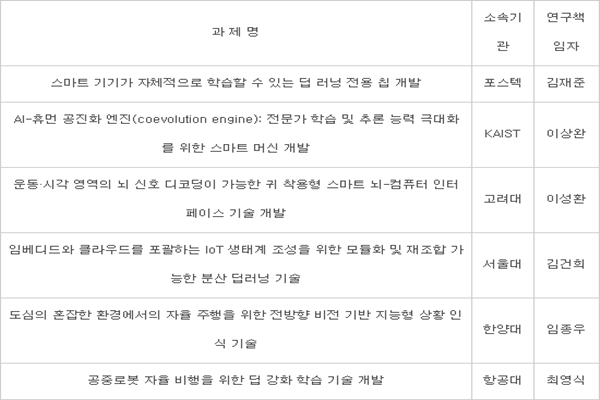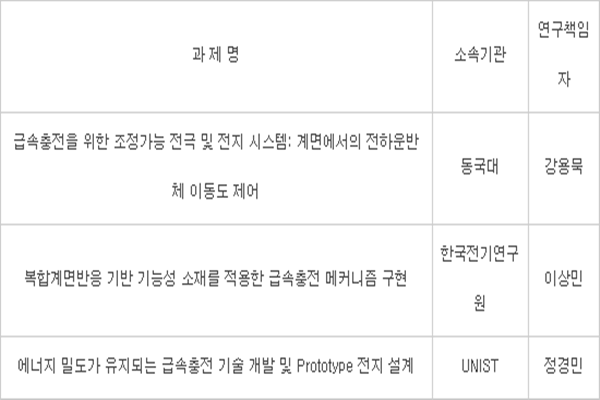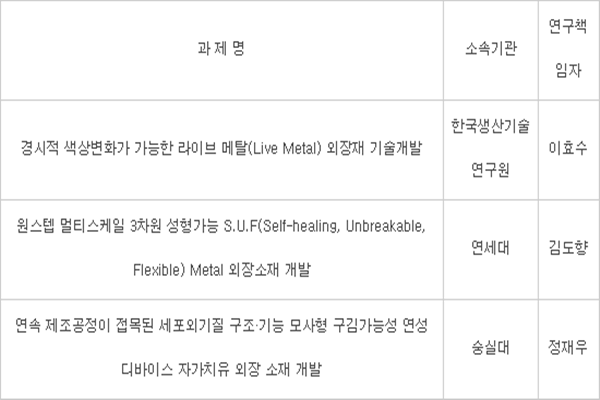12 tasks such as Deep Learning chip that allows Smart devices to learn on their own, intelligent-type situation recognition technology for self-driving cars on streets, new metallic materials that heal exterior damages on their own and others were selected by Samsung for its future technology promotion project.
Samsung made an announcement on the 11th that it selected 12 tasks from 3 fields such as AI for Smart devices, rapid charging batteries, and functional exterior materials for its 2016 future technology promotion project.
In an area of AI for Smart devices, Samsung selected 6 tasks such as development of Deep Learning chip that allows Smart devices to learn on their own without need for separate servers.
Development of Deep Learning chip is a task to implement hardware accelerator with ultra-low power consumption that imitates human brain’s nerve network structure and movement by utilizing semiconductor technologies. It will be widely used as hardware chip platforms for AI and IoT generations since devices can learn on their own without help from Deep Learning software algorithm that is established in Cloud and servers. Professor Kim Jae-joon of POSTEC (Pohang University of Science and Technology), who used to work for IBM Watson, will be the head researcher for this project.
3 tasks were selected for an area of rapid charging battery and they are: Implementation of a rapid charging mechanism with complex interface response-based functional materials (Ph.D. Lee Sang-min of Korea Electrotechnology Research Institute), adjustable electrodes and battery system for rapid charging: control of mobility of charge carrier on interface (Professor Kang Yong-mook of Dongkuk University) and development of rapid charging technology that maintains density of energy and design of prototype batteries (Professor Jung Kyeong-min of Ulsan National Institute of Science and Technology).
In an area of functional exterior materials, 3 tasks including development of one-step multi-scale 3D reconstructable S.U.F (Self-healing, Unbreakable, Flexible) metallic exterior materials.
Goal of this project, which is led by Professor Kim Do-hyang of Yonsei University, is to develop exterior materials with special characteristics that allow themselves to heal on their own, be flexible, and not to be broken from exterior damages while maintaining texture of metallic materials. These are new metallic materials where shape-memory alloys are dispersed in titanium-type amorphous metals and they are expected to be used not only for Smartphones in the future but also for futuristic devices such as variety of IT devices and robots.
Tasks that were selected together are: Development of live metallic exterior material that can change colors microscopically (led by Lee Hyo-soo of Korea Institute of Industrial Technology) and development of structure of extracellular matrix with repeated manufacturing processes and ductile exterior materials that can imitate functions, heal on their own, and be wrinkled (Professor Jung Jae-woo of Sungsil University).
Samsung invested total of $1.30 billion (1.5 trillion KRW) since 2013 for next 10 years to support promotion of national scientific technologies such as basic science, materials, and ICT as well as new technologies and futuristic technologies and has been managing its future technology promotion project. Tasks for public participations for basic science, materials, and ICT fields are selected once during first half and second half of every year and tasks for second half of this year will be announced on the 29th of September. Tasks public participations for new technologies and futuristic technologies are selected once every year and applications for public participation for next year will be made in May of 2017.
Staff Reporter Kwon, Keonho | wingh1@etnews.com


